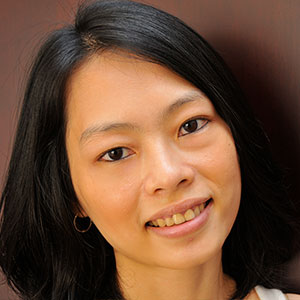Conventionally, an academic is someone whose work covers mainly teaching, conducting research and writing academic papers. But the roles of an academic are far more than that.
When a student enters university, an academic has a responsibility to prepare his or her students with necessary skills for the working life. After all, in today’s world, a degree alone is not sufficient to guarantee a job.
I must say that among the best parts of being an academic is the ability to inspire a new generation of professionals and the opportunity to be a part of the young adults’ lives. Being an academic is exciting, because we can contribute to society.
The academic ought to be a role model. A good academic teaches students to think and to reason independently and critically. Hence, it is a duty of an academic to speak up on critical issues.
Opponents of academic freedom and freedom of inquiry are growing by the day. Yet, important questions remain unattended. What exactly is academic freedom? Why is it important for us? What is it about academic freedom that makes it worth worrying about and worth fighting for?
Richard Nixon said, “I believe that academic freedom should protect the right of a professor or student to advocate Marxism, socialism, communism, or any other minority viewpoint – no matter how distasteful to the majority.”
For this reason, academic freedom must be defended. It is for universities to stimulate, rather than repress, discussions of controversial and sensitive subjects. It is not or not merely a passion for freedom for its own sake.
Like many Malaysians out there, whether in the academic community or not, I am troubled by the sedition charge brought against law professor Dr Azmi Sharom, over his legal opinion on a constitutional matter.
Now, isn’t it part of the job of an academic to provide opinions based on his or her expertise?
With the term academic freedom, it was designed to give academics the freedom to be different in their ideology and to challenge the existing wisdom without fear of harassments by the government or any repercussions on their careers.
Dennis Hayes, who heads Academics for Academic Freedom, states: “Lose academic freedom and you have not just lost a freedom, you have lost the university.”
What he said is true. The best defence of academic freedom is not because it is a right, but because it is the basis for productivity and efficiency of a university. It is an irony when the government calls on academics to be progressive but at the same time limits how they should behave.
A failure to defend dissenting voices places at risk the greatest avenue for the creation of new ideas beneficial for our nation's future. Such freedom of inquiry is crucial. Most importantly, a threat to academic freedom is a threat to nation-building as a whole.
I am not suggesting that academic freedom should be boundless. But if we do not defend our academic freedom, we will regret, as our children will not be prepared for the world they will live in.
The job of an academic is not just to teach; it is also about making a nation. Hence, those freedoms must be preserved. – September 8, 2014.
* This is the personal opinion of the writer or publication and does not necessarily represent the views of The Malaysian Insider.


Comments
Please refrain from nicknames or comments of a racist, sexist, personal, vulgar or derogatory nature, or you may risk being blocked from commenting in our website. We encourage commenters to use their real names as their username. As comments are moderated, they may not appear immediately or even on the same day you posted them. We also reserve the right to delete off-topic comments